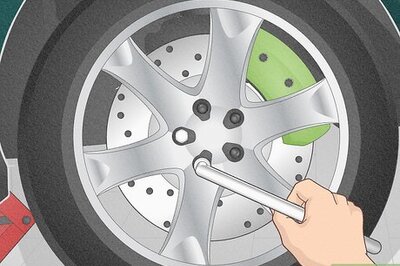
views
London: About 16,000 words have succumbed to pressures of the Internet age and lost their hyphens in a new edition of the Shorter Oxford English Dictionary. Bumble-bee is now bumblebee, ice-cream is ice cream and pot-belly is pot belly.
And if you've got a problem with that, don't be such a crybaby (formerly cry-baby).
The hyphen has been squeezed as informal ways of communicating, honed in text messages and emails, spread on web sites and seep into newspapers and books.
"People are not confident about using hyphens anymore, they're not really sure what they are for," said Angus Stevenson, Editor of the Shorter OED, the sixth edition of which was published this week.
Another factor in the hyphen's demise is designers' distaste for its ungainly horizontal bulk between words.
"Printed writing is very much design-led these days in adverts and web sites, and people feel that hyphens mess up the look of a nice bit of typography," he said. "The hyphen is seen as messy looking and old-fashioned."
The team that compiled the Shorter OED, a two-volume tome despite its name, only committed the grammatical amputations after exhaustive research.
"The whole process of changing the spelling of words in the dictionary is all based on our analysis of evidence of language, it's not just what we think looks better," Stevenson said.
Researchers examined a corpus of more than 2 billion words, consisting of full sentences that appeared in newspapers, books, Web sites and blogs from the year 2000 onwards.
For the most part, the dictionary dropped hyphens from compound nouns, which were unified in a single word (e.g. pigeonhole) or split into two (e.g. test tube).
But hyphens have not lost their place altogether. The Shorter OED editor commended their first-rate service rendered to English in the form of compound adjectives, much like the one in the middle of this sentence.
"There are places where a hyphen is necessary," Stevenson said. "Because you can certainly start to get real ambiguity."
Twenty-odd people came to the party, he said. Or was it twenty odd people?
Some of the 16,000 hyphenation changes in the Shorter Oxford English Dictionary, sixth edition include (formerly hyphenated words split in two:) fig leaf, hobby horse, ice cream, pin money, pot belly, test tube, water bed, (formerly hyphenated words unified in one) bumblebee, chickpea, crybaby, leapfrog, logjam, lowlife, pigeonhole, touchline, waterborne etc.


















Comments
0 comment